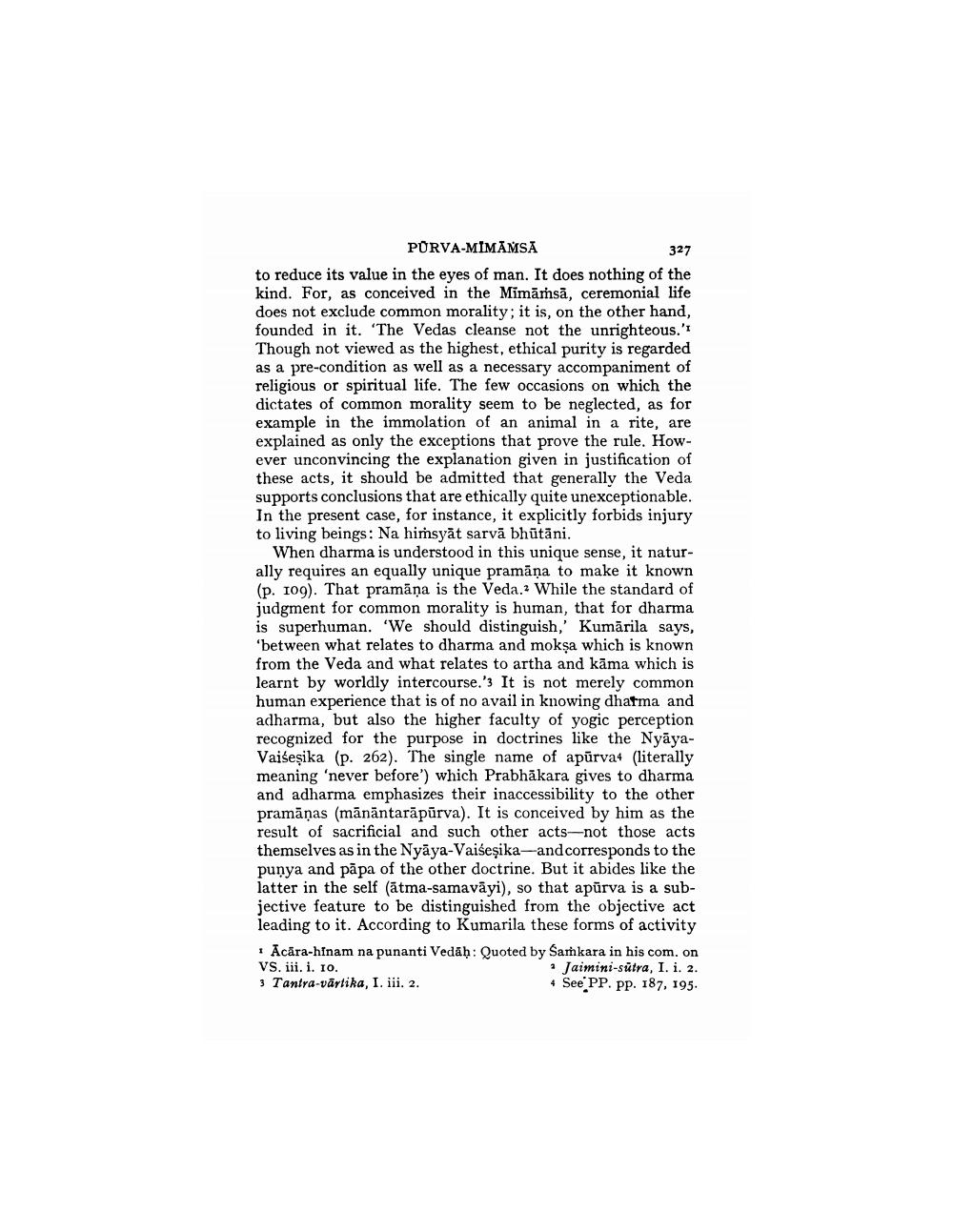________________
PORVA-MIMANSA
327 to reduce its value in the eyes of man. It does nothing of the kind. For, as conceived in the Mimāmsă, ceremonial life does not exclude common morality; it is, on the other hand, founded in it. 'The Vedas cleanse not the unrighteous.' Though not viewed as the highest, ethical purity is regarded as a pre-condition as well as a necessary accompaniment of religious or spiritual life. The few occasions on which the dictates of common morality seem to be neglected, as for example in the immolation of an animal in a rite, are explained as only the exceptions that prove the rule. However unconvincing the explanation given in justification of these acts, it should be admitted that generally the Veda supports conclusions that are ethically quite unexceptionable. In the present case, for instance, it explicitly forbids injury to living beings: Na himsyāt sarvā bhūtāni.
When dharma is understood in this unique sense, it naturally requires an equally unique pramāna to make it known (p. 109). That pramāņa is the Veda.. While the standard of judgment for common morality is human, that for dharma is superhuman. "We should distinguish, Kumārila says, 'between what relates to dharma and mokṣa which is known from the Veda and what relates to artha and kāma which is learnt by worldly intercourse.'3 It is not merely common human experience that is of no avail in knowing dhatma and adharma, but also the higher faculty of yogic perception recognized for the purpose in doctrines like the NyāyaVaisesika (p. 262). The single name of apūrvat (literally meaning 'never before') which Prabhākara gives to dharma and adharma emphasizes their inaccessibility to the other pramāņas (mānäntarāpūrva). It is conceived by him as the result of sacrificial and such other acts-not those acts themselves as in the Nyāya-Vaiseşika---and corresponds to the punya and pāpa of the other doctrine. But it abides like the latter in the self (ātma-samavāyi), so that apūrva is a subjective feature to be distinguished from the objective act leading to it. According to Kumarila these forms of activity
Acāra-hinam na punanti Vedāḥ: Quoted by Sarkara in his com. on VS. iii. i. 1o.
· Jaimini-sútra, I. i. 2. 3 Tantra-vārtika, I. iii. 2.
4 See PP. PP. 187, 195.




